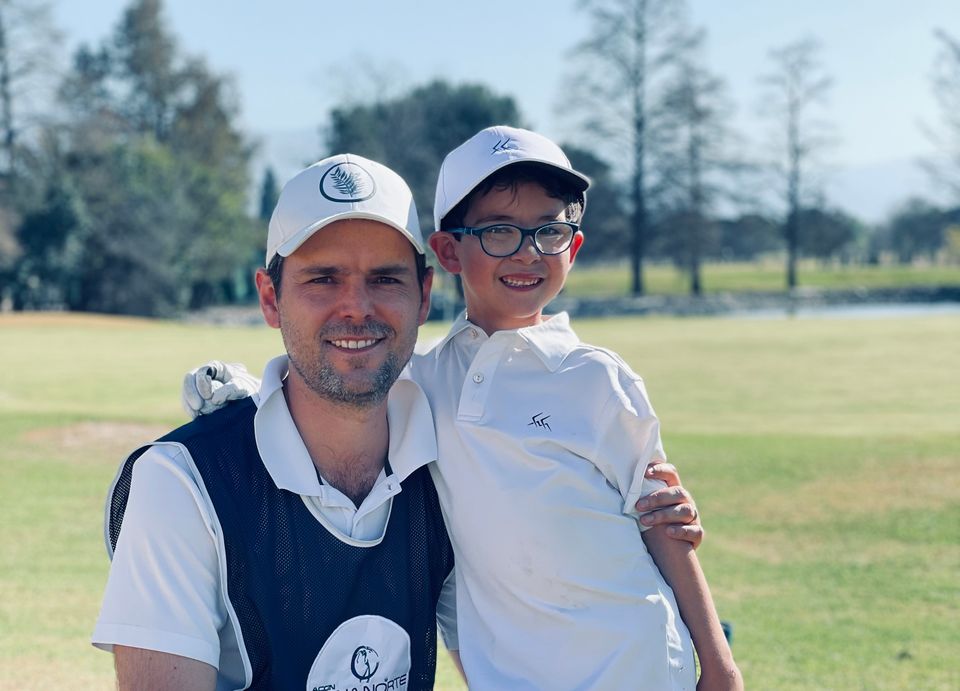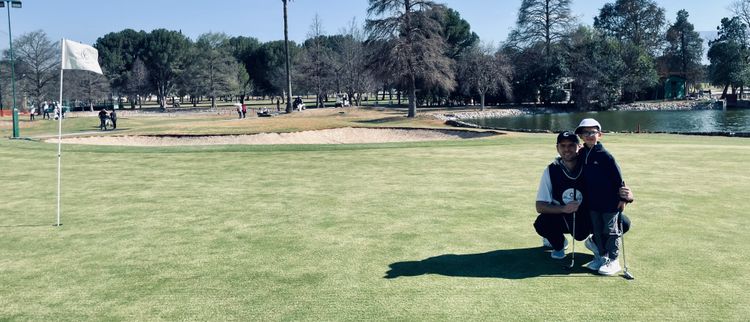Lessons From a Daddy Caddy

During the past year, I have been caddying for my 6-year-old, who has been participating in a regional golf tournament. There are many things to write, not only about the lessons I've taught him but the ones I've learned from being his caddie.
Caddying for anyone is hard. Caddying a kid during a tournament is an emotional rollercoaster. You watch as your child struggles to hit the ball or make an easy put; you have to manage their mood swings, cheer them up after a bad hole, and tone them down after a good one. You need to ensure they are hydrated and have the energy to go through the whole 3-4 hours.
But, most importantly, you need to make it seem that no matter how it goes, it is a fun experience. Otherwise, they might get tired of it, or worse, grow to hate the sport and leave it.
Here are a few things I've come to learn throughout this last year:
1. Set realistic expectations
You don't want to make your kid feel like they have to par every hole. Initially, setting lower expectations is better. Once they have a reference point, they know how good they can be and have a target to beat: themselves. It's important to focus on progress rather than the final result. Progress will feed motivation, and motivation will feed progress.
2. Set a 20-second frustration rule
Bad shots and holes are going to happen, they happen to a new golfer, and they happened to Tiger Woods in his prime. Feeling upset is expected; holding it in might not even be healthy for a kid. So rather than saying, "Don't be upset! Don't get angry!" we've set a rule where he is allowed to be angry for 20 seconds, and then it's on to the next hole. Before the round, we work on breathing exercises, visualization, and positive self-talk. We know bad moments will happen, so when they do, having anticipated them helps to overcome them quickly.
3. Don't run out of battery
When starting a round, kids are excited and want to run from one place to another, even under a 100F sun. My kid would sometimes get to the last hole quite tired and occasionally annoyed. It wasn't until I explained to him that his body was like an iPad's battery that it clicked: "If you use much of it at the beginning, you won't have much of it, or any, at the end... So hydrate, stay in the shade, and avoid running to preserve energy during the round". Kids will still be kids, so don't try to contain all play with other kids. That's also part of what makes kids' golf fun.
4. Long-term expectations, short-term intensity
Of course, kids want to stand out during tournaments. But stressing about having a good result in one weekend is not helpful. Instead, thinking about lowering their score from one trimester to the next is more achievable. Once they see results, a growth mindset kicks in. They realize that patience, practice, and persistence are more important in the long run. My kid has gone from shooting in the upper 70s to the lower 50s in 9 months. He gets even more hooked for the next tournament when he realizes that.
5. Above all, good sportsmanship
Many people ruin their reputations through golf. It's pretty easy from the outside to notice when players are not counting all their shots or when they took advantage of an ambiguous rule. It's the same for parents who are caddying for their kids... you notice. What's in it for a kid if they gain or lose a couple of strokes? Not much. So it's best they see you counting all shots and playing by the rules, even when no one is watching... especially when no one is watching.
6. The most important shot is... the next one
It's all too easy to dwell on a bad shot or an unlucky break, but golf is a game that requires as much mental discipline as physical skill. One of the most valuable lessons a child can learn from golf is the ability to stay present and focused on the task at hand. Encourage your child to approach each shot with a clear mind, taking one step at a time and enjoying the process rather than becoming fixated on the outcome. This mentality will not only improve their golf game, but it will also serve them well in all areas of life.
A golf tournament can be an emotional journey, especially for a child, but it's also an opportunity for growth and learning. Remember, golf is not just about hitting the ball but also about learning life skills, such as patience, perseverance, and resilience. Enjoy the journey and make it a fun and memorable experience for both you and your child.





Comments ()